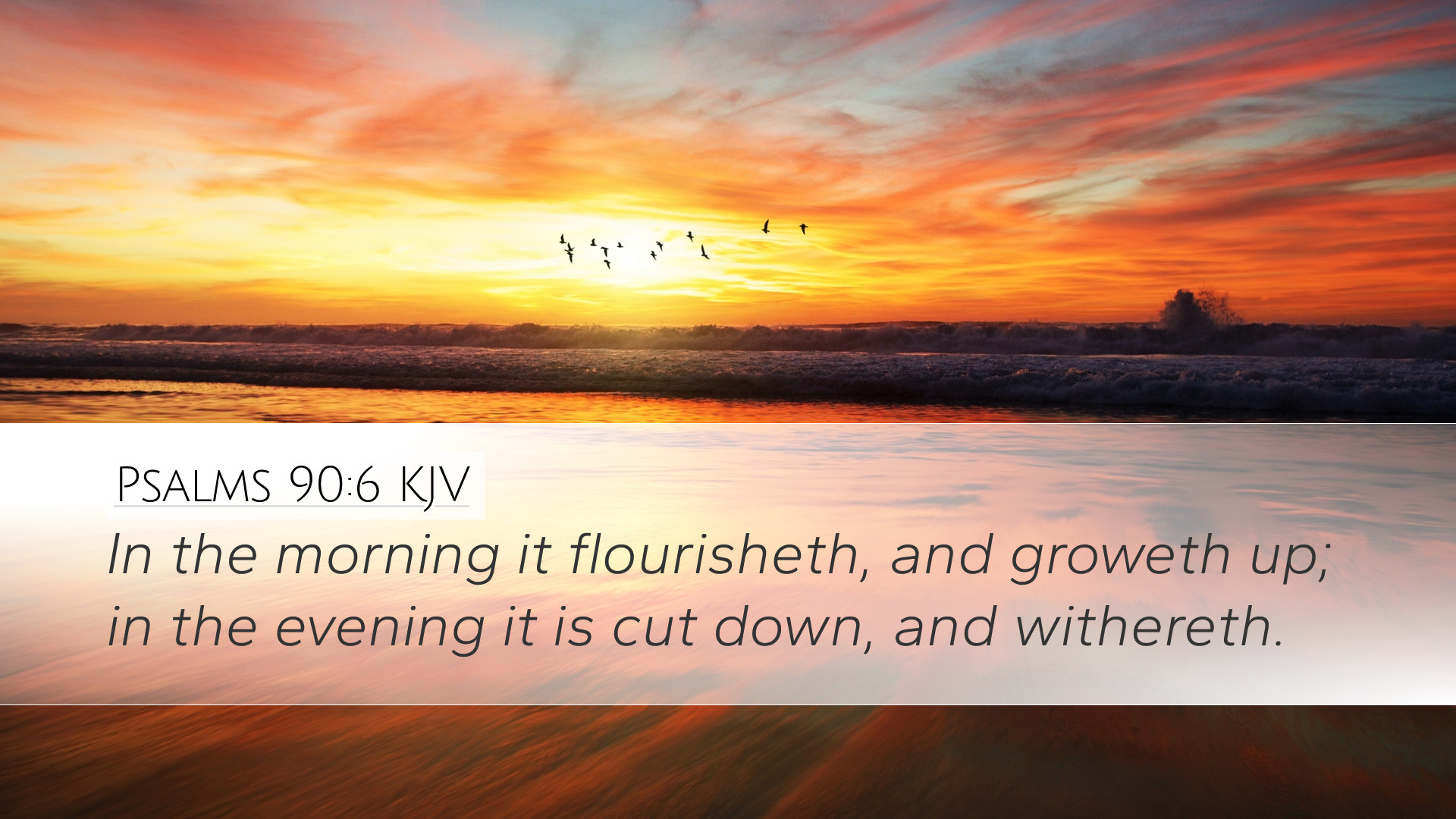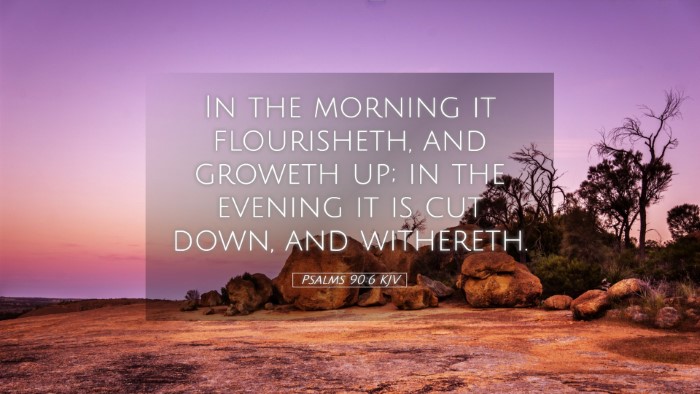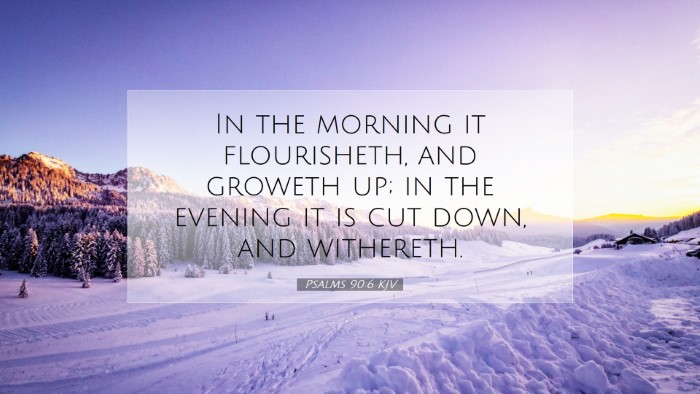Psalms 90:6 - A Commentary Summary
Verse: "In the morning it flourishes, and grows up; in the evening it is cut down, and withereth."
Context of Psalm 90
The text of Psalm 90 is attributed to Moses, making it unique among the psalms found in the Psalter. This psalm is a meditation on the transience of human life as contrasted with the eternity of God. It conveys a sense of urgency about the brevity of life and the need for wisdom in living. The verse in focus illustrates the fragility of human existence through the metaphor of grass.
The Metaphor of Grass
This verse uses the imagery of grass to discuss the cycle of life:
- Morning Flourishing: In the morning, grass flourishes, symbolizing youth and vitality. This can be attributed to the vigor and energy present in the beginning of life.
- Noon Growth: The growth during the day signifies progress and the peak of life’s potential. It reflects the time when human endeavors are thriving.
- Evening Cuts Down: The metaphor shifts as evening arrives, indicating decline. The mention of being "cut down" denotes the inevitability of death. It reflects the transient nature of all things in life.
- Withereth: This concluding idea presents the ultimate fading of life and vitality. It signifies mortality and the ephemerality of earthly existence.
Insights from Public Domain Commentaries
Matthew Henry's Commentary
Matthew Henry emphasizes the fleeting nature of life that this verse encapsulates. He notes that just as grass is temporary, humanity is marked by its brevity. Henry draws attention to the fact that while we may flourish in our youth, our lives can be swiftly cut short. He teaches that we must use our brief time wisely, encouraging a focus on spiritual matters as opposed to earthly pursuits.
Albert Barnes' Commentary
Albert Barnes provides a detailed examination of the life cycle depicted in this verse. He discusses how the flourishing of the grass represents human life at its best, but that this glory is soon taken away. Barnes argues that this passage serves as a stark reminder of mortality, encouraging readers to consider the fleeting joy of earthly pleasures. He concludes with a call to pursue a life that is pleasing to God, reflecting on the importance of recognizing life’s transient nature.
Adam Clarke's Commentary
Adam Clarke offers a theological perspective on the significance of this verse. He articulates that the imagery of grass serves to highlight not only the insignificance of humanity compared to God’s eternal nature but also the divine sovereignty over life and death. Clarke emphasizes the need for humility in recognizing the temporary nature of human achievements and the necessity of seeking the eternal. He sees this verse as an invitation to ponder life’s fleeting moments and to invest in heavenly treasures.
Theological Implications
This verse holds various theological implications that are meaningful to pastors, students, theologians, and Bible scholars:
- Transience of Life: A recognition that human life, while vibrant, is ultimately temporary, fostering a sense of urgency to engage with God’s calling.
- Human Dependence on God: The image evokes a profound reliance on God, underscoring the belief that life and flourishing come from Him.
- The Call for Reflection: This passage encourages individuals to reflect on their lives, evaluating whether they are living in alignment with God’s ways.
- Understanding Suffering and Mortality: It prompts discussions about the nature of suffering and the reality of death as essential aspects of the human experience.
Conclusion
Psalms 90:6 serves as a sobering reminder of life's fragility and the impending reality of death. Through the combined insights of Henry, Barnes, and Clarke, we see a profound call to introspection regarding how we spend our days. Each day should be viewed as an opportunity to grow in wisdom and grace, understanding the transient beauty of life while anchoring our hope in the eternal nature of God.
This verse encourages believers to live with purpose and intentionality, drawing nearer to God in the understanding that life is a precious yet fleeting gift.


